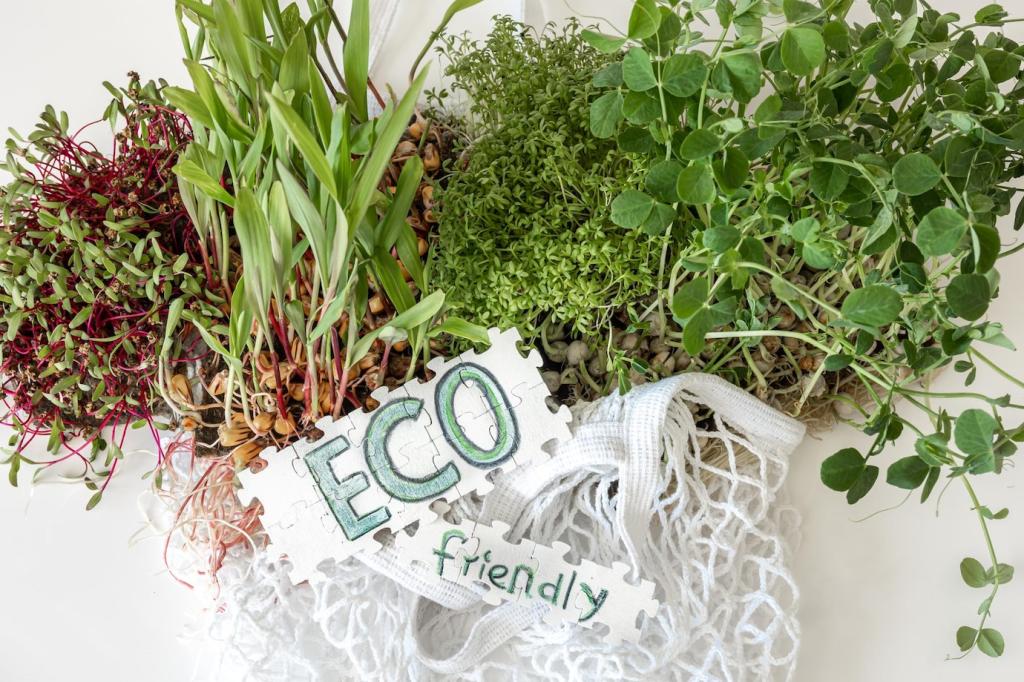How Ethical Consumption Shapes Our Climate Future
Chosen theme: The Impact of Ethical Consumption on Climate Change. Explore how everyday choices—from groceries to gadgets—can shrink emissions, strengthen communities, and nudge markets toward a livable, low-carbon future. Join the conversation and subscribe for practical ideas you can use today.
What Ethical Consumption Really Means for the Climate
Ethical consumption translates personal values into measurable climate benefits by prioritizing lower-emission products, fair labor, durability, and repairability, which together reduce waste, demand for high-carbon goods, and pressure on fragile ecosystems.
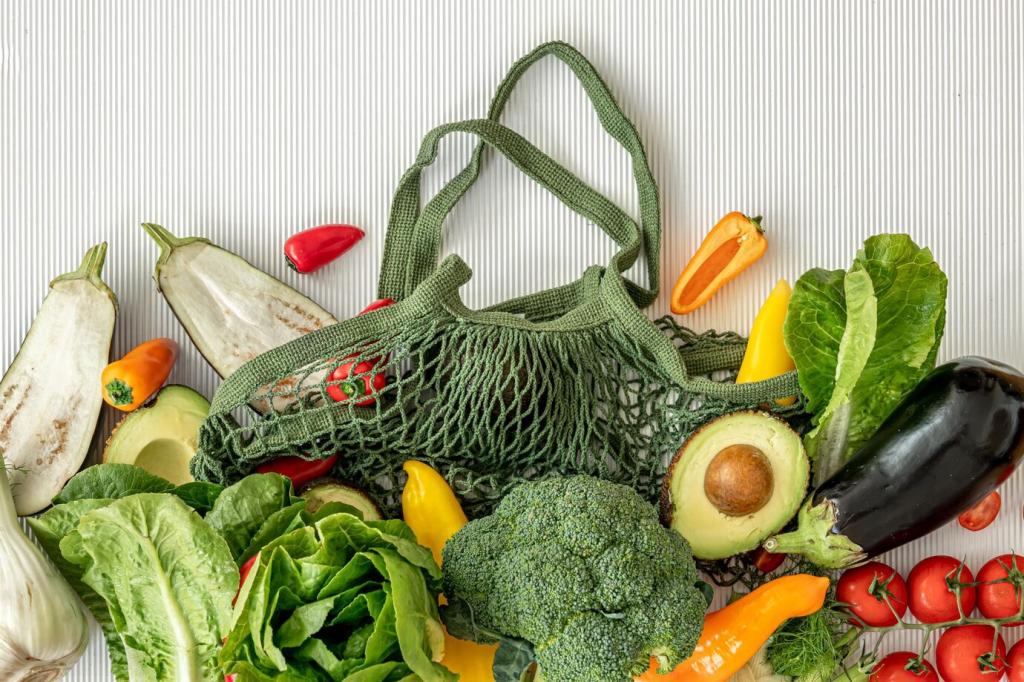
The Carbon Math Behind Everyday Purchases
Beef often carries a far higher footprint than legumes, while plant-forward meals typically require less land and energy. Swapping just a few meat-centric dinners weekly can meaningfully reduce household emissions without sacrificing satisfaction.
The Carbon Math Behind Everyday Purchases
Fast fashion’s quick turnover fuels energy-intensive production, transport, and landfill waste. Choosing quality, repairing, and thrifting slows the cycle, significantly shrinking emissions associated with dyeing, fabric production, and frequent shipping.
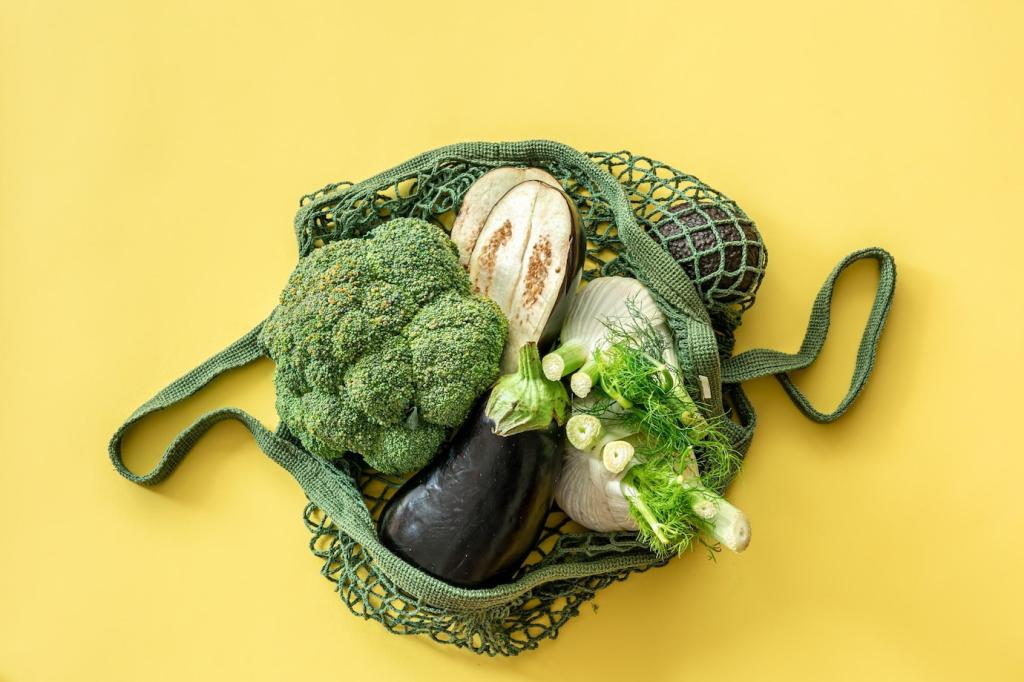
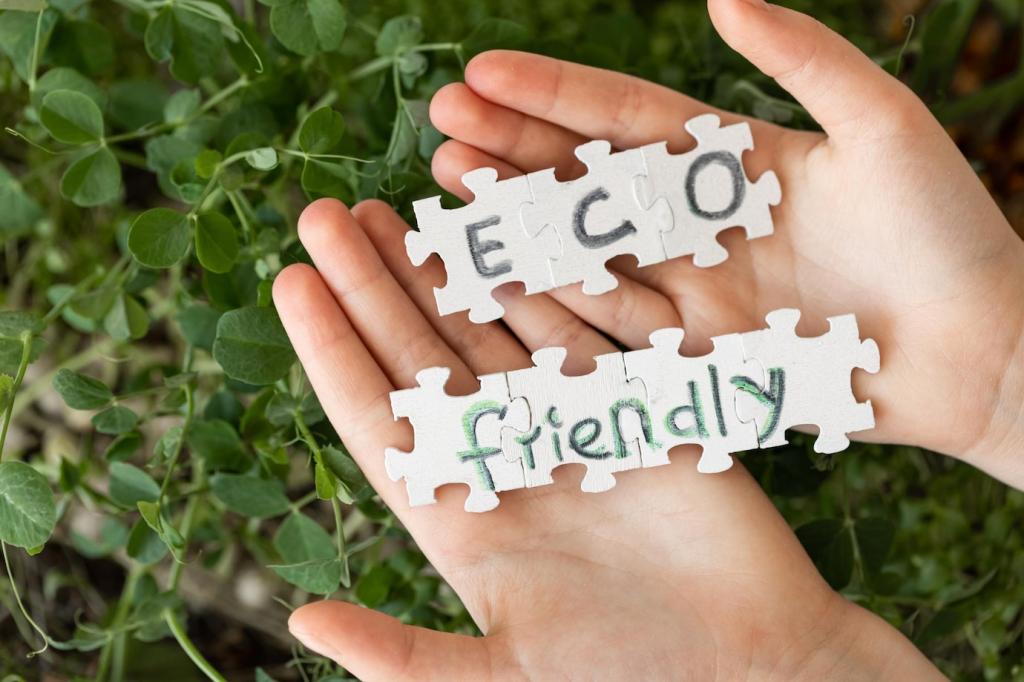
Food Choices That Cool the Planet
Start with one plant-based breakfast, one lunch, and one dinner each week. This gentle shift cuts agricultural emissions and invites creativity, making sustainable eating delicious, affordable, and easy to repeat.
Wear Longer, Care Smarter: Fashion for a Cooler Climate
Opt for durable fibers, recycled materials, and garments with repair-friendly construction. Well-made clothes last longer, reduce production demand, and keep carbon-heavy items from cycling endlessly through closets and landfills.
Host a neighborhood mending night or a clothing swap. These small gatherings turn sustainability into culture, fostering connection while avoiding the emissions of manufacturing and shipping brand-new items.
Wash cold, line-dry when possible, and spot-clean instead of frequent full washes. These simple habits save energy, preserve fabric, and extend garment life, reducing climate impact across years of wear.
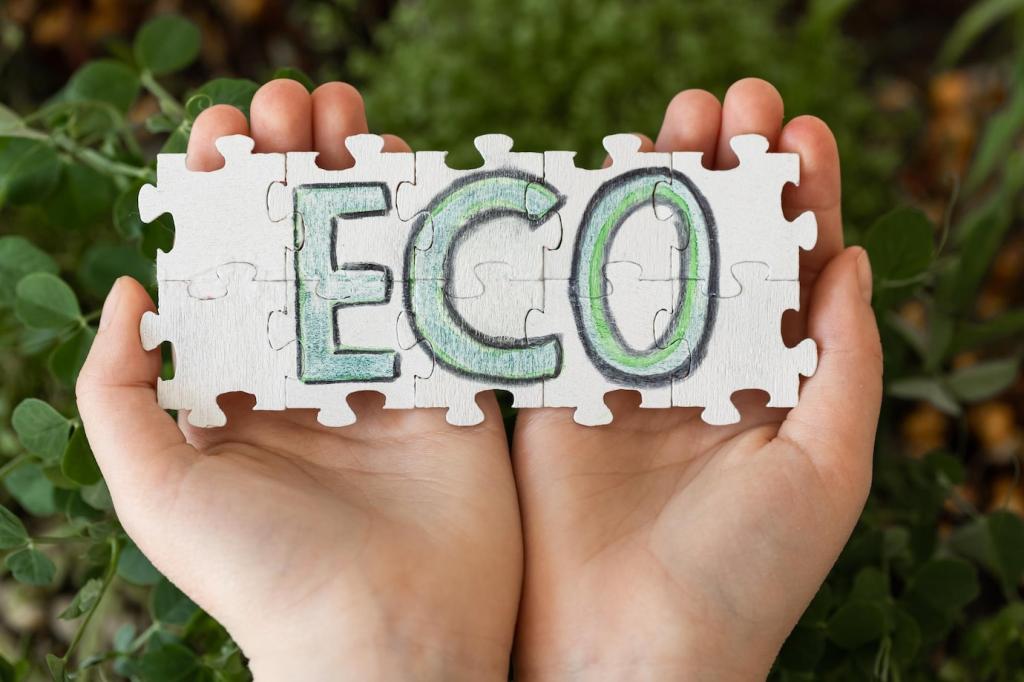
Certifications as Climate Clues
Look for credible standards that track energy, materials, and responsible sourcing. While no label is perfect, rigorous certifications make it easier to choose lower-emission options with confidence and consistency.

Digital Tools that Inform Choices
Impact apps, product QR codes, and life-cycle summaries can reveal emissions hotspots. Use them as guides, not guilt machines, and share your favorite tools so others can make informed climate decisions.
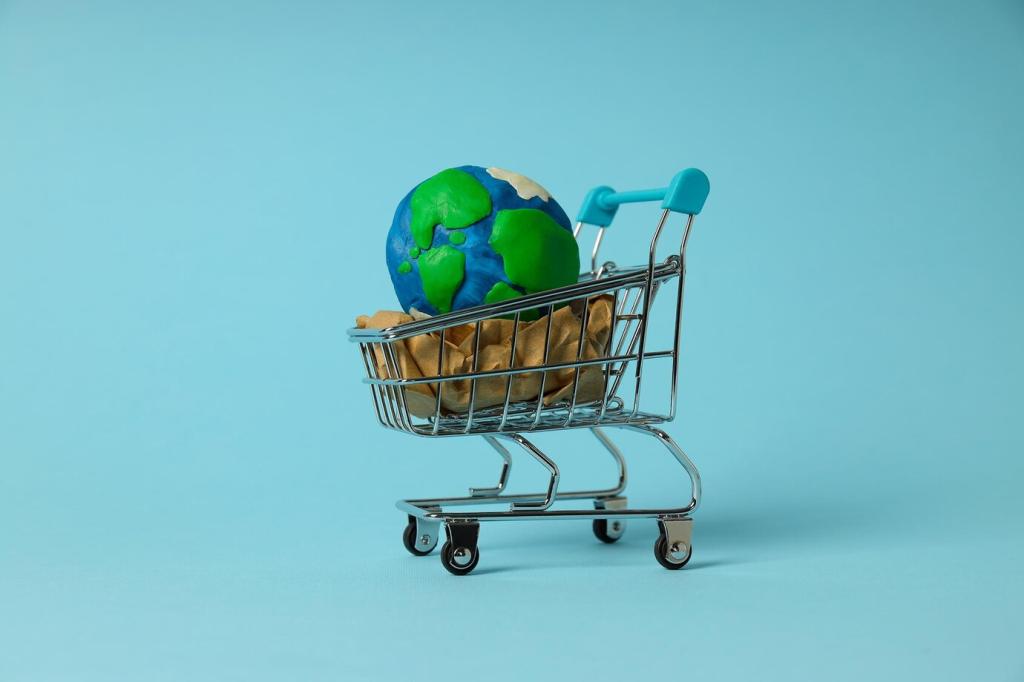
Spotting and Avoiding Greenwashing
Beware vague claims like “eco-friendly” without data. Ask for specifics on energy, materials, and end-of-life plans, and encourage brands to publish transparent metrics you can reasonably compare across products.
Community Power: Turning Choices into Collective Climate Wins

Tool libraries, seed swaps, and kids’ gear exchanges reduce new purchases and related emissions. If you’ve tried one, tell us what worked and what you’d improve to help others replicate success.
Your 30-Day Ethical Consumption Starter Plan
Week 1: See What’s There
Audit your trash, pantry, and closet. Identify three high-impact swaps, like plant-based meals, cold washes, or a repair you’ve delayed. Share your list so others can learn from your discoveries.
Week 2: Make One Habit Frictionless
Automate easy wins: set cold-wash defaults, add a bike basket, or schedule a farmers’ market visit. Simple environmental cues reduce decision fatigue and anchor climate-friendly behavior long-term.
Weeks 3–4: Scale and Share
Try a clothing swap, plan a bulk-buy with friends, and track your avoided emissions in a simple note. Subscribe for weekly prompts and tell us which habit felt surprisingly effortless.
Signals to Markets and Policymakers
Consistent purchases of lower-emission goods increase economies of scale and confidence for producers to switch materials, renewables, and logistics—accelerating climate progress faster than individual actions alone.
Signals to Markets and Policymakers
Pair smart shopping with civic engagement. Write to local officials about repair rights, waste reduction, or cleaner transit. Ethical consumption is strongest when backed by policy that supports better choices.

